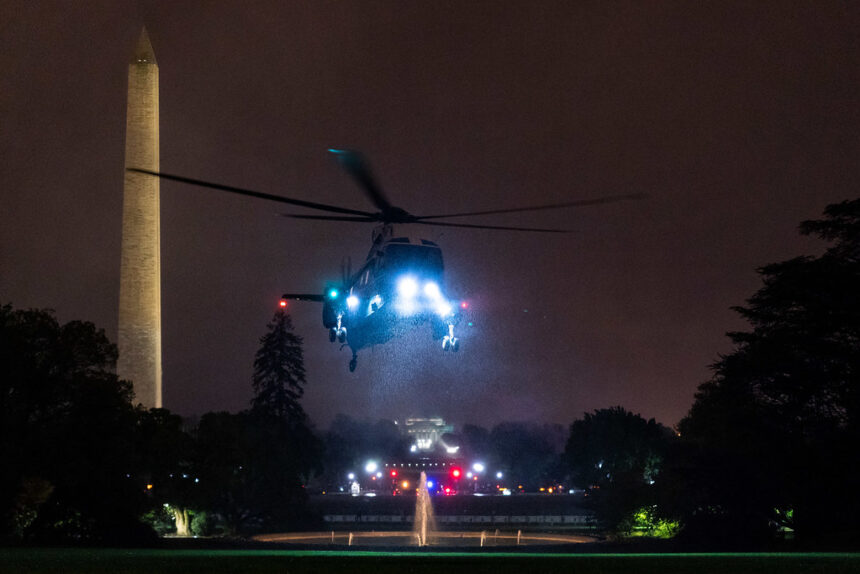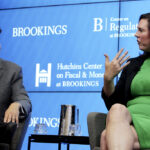Donald Trump is about to be sworn-in as the new US president. His impending leadership has created an entirely new dilemma for Western businesses still operating in Russia. They are now forced to reassess their business interests in light of his policies.
A Reuters report based on interviews with lawyers, bankers and advisers involved in many Western corporate exits from Russia reveals that businesses still operating in the country closely monitor Trump’s possible actions and adapt their strategies accordingly.
Since the Russian invasion of Ukraine in 2022, more than a thousand multinational companies have had to make a difficult decision about whether they should stay or leave.
Many, including household brands like Renault, McDonald’s and Heineken chose to exit. They absorbed substantial losses via writedowns and discounted assets sales dictated by Russian officials.
Some companies have chosen to stay.
Financial institutions like Raiffeisen Bank International, UniCredit, and PepsiCo are restricted by the profits they have trapped in Russia and the complicated approval process for their exit.
Since October, when Moscow introduced stricter terms for exiting the country, the cost of leaving Russia is now significantly higher.
Companies must now sell their assets for a minimum of 60% off and contribute 35% to the Russian budget. This is referred to as an “exit fee” by US officials.
This policy has placed a heavy financial burden on multinationals who want to cut off ties with Russia.
Trump’s return – a game changer?
Many companies are recalibrating plans for Russia in light of Trump’s inauguration.
Even if they are unlikely to be met quickly, the promises made by his administration to negotiate a resolution to the Ukraine conflict have added a new layer to geopolitical complexity.
“Trump’s victory in the election adds an additional layer of uncertainty to multinationals with assets located in Russia,” said Ian Massey of global risk consultancy S-RM.
While the Kremlin continues its efforts to increase the costs associated with leaving the Russian market (and thus the Russian market), Trump may reduce these costs, creating a sort of stasis.
Legal and financial advisors who work with Russian companies note that Trump’s return may provide political cover for firms who decide to stay. Others may wait for possible sanctions relief that could ease exits.
Alan Kartashkin is a partner with Debevoise and Plimpton. He suggested that even a limited relief of sanctions could unfreeze foreign assets in Russia and unlock a new wave of divestments.
He said that if the new administration can negotiate a resolution to the conflict in Ukraine, we might see some sanctions reduced.
Cost of leaving Russia
The path for companies looking to leave Russia has become much more difficult.
Moscow has strict rules for asset sales. These include appraisals by government-approved appraisers, and auctions among local buyers.
Vladimir Putin must personally approve high-value deals exceeding 50 billion Rubles ($488 millions), and buyers are required to demonstrate the benefits of the purchase to the Russian economy.
“The ability to sell a large asset under minimally acceptable conditions is severely limited,” said a Russian attorney involved in corporate exits.
According to advisers, these hurdles have reduced the number of transactions by more than 20% from their peak in mid-2023.
The problem is compounded by the financing challenges. The cost of borrowing at 21% is prohibitively expensive for many potential buyers. This further reduces the pool of bidders.
The risks of staying in Russia
The risks for companies that choose to stay are significant.
Moscow has temporarily taken over more than a dozen assets owned by foreigners. This is widely viewed as a tactic used to lower prices for local buyers.
Carlsberg found this out the hard way in July 2023 when its stake in Baltika Breweries, which was nearly completed, was seized.
The Danish brewery finally secured a deal worth 34 billion roubles ($413 millions) in December. However, it was not without delays and uncertainty.
Unilever was able to divest of its Russian assets, which included four factories, just prior to the stricter rules taking effect in October.
The deal, valued at close to EUR500m, was a rare success for a multinational trying to navigate Russia’s tightened expulsion regime.
Trump’s wildcard effect
Trump’s return as president presents both risks and opportunity for Western companies.
On the one hand, his government could facilitate the easing sanctions, potentially creating an opening for smoother exits.
His unpredictable approach to international affairs could also lead to new complications.
“Trump is a wildcard,” said a financial service professional familiar with Russia’s business environment.
“You don’t know exactly what he is going to do,” said the man.
Many multinationals are taking a wait-and see approach for now, weighing up the costs of leaving versus the risks of remaining in a market that is becoming increasingly volatile.
The next few months will determine whether Trump’s presidency changes the balance in their favor or adds more uncertainty to a decision that is already fraught.
This post Stay or Leave? The post Western companies in Russia grappled with next steps under Trump Administration appeared first on The ICD
This site is for entertainment only. Click here to read more






